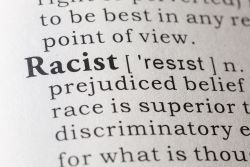By Jim Cline and Peter Haller
 In Andrade v City of Milwaukee, the Wisconsin State Supreme Court ruled that a police officer fired for making racist comments on Facebook was not entitled to getting his job back because of an alleged pre-termination due process violation. The Court reasoned that the officer was entitled to notice of the charges against him, but not to all the information related to factors involved in determining the level of discipline imposed.
In Andrade v City of Milwaukee, the Wisconsin State Supreme Court ruled that a police officer fired for making racist comments on Facebook was not entitled to getting his job back because of an alleged pre-termination due process violation. The Court reasoned that the officer was entitled to notice of the charges against him, but not to all the information related to factors involved in determining the level of discipline imposed.
Erik Andrade, a police officer for the City of Milwaukee, was one of several officers who arrested then Milwaukee Bucks player, Sterling Brown, when Brown allegedly double-parked in a disabled parking space. Officers used force and discharged a taser during the arrest of Brown, which led to widespread media coverage of the incident.
When Brown sued the City of Milwaukee over the incident, the media and the public learned that Andrade had posted about the incident on his personal Facebook account. Andrade had also made other posts in which he mocked another black NBA players and stated that he would like to see another Black NBA player get arrested.
The City argued that the publicity of the insensitive Facebook posts compromised Andrade’s ability to testify in court. The local district attorney’s office became concerned that the Facebook posts could become Brady material, meaning that Andrade’s credibility would be questioned anytime he testified. The City fired Andrade largely on this basis, but only cited violations of department policies related to ethics and professionalism in its pre-termination letter.
Andrade argued that the City violated his due process rights when it failed to notify him that the basis of his termination was in large part due to his inability to function as a witness. Thus, Andrade argues that he was deprived of the opportunity to be heard on this issue at his pre-termination hearing.
The Court disagreed with Andrade’s argument that he was owed notice of the issues related to his inability to testify in future criminal trials. The Court concluded that the City adhered to all the pre-termination requirements when it cited department policies and provided a chance for Andrade to be heard on those issues. The Court reasoned,
“The inability to testify was not the conduct that violated the policies, but rather a consequence of Andrade’s conduct that informed the level of punishment imposed.”
Thus, the potential Brady issue was merely a factor in determining the level of discipline imposed, not an actual allegation that led to his discipline. Thus, Andrade was not owed notice of his inability to testify prior to his pre-termination hearing.
This certainly involves at least a situation of “bad facts making (arguably) bad law. The Loudermill case law is a bit conflicted as to how specific the notice needs to be, so the officer had at least a colorable Loudermill violation claim. A different lesson here is that the forum of choice is important. Had he presented this argument to an arbitrator, he may have had a more favorable outcome. Arbitrators are fairly consistent in holding that the employer must disclose the rationale for the discharge at the time of the discharge and cannot expand on it later.
The ambiguity here is whether the “reason” cited for the termination was all the bad conduct or the specific Brady issues. It’s clear that had the Department been assuming a Brady rationale for his testimony that an arbitrator, at least, would have required that disclosure at the time of the pretermination hearing so the employee could address it.
**Visit our Premium Website for more information on Loudermill, Due Process and Notice of Charges**


